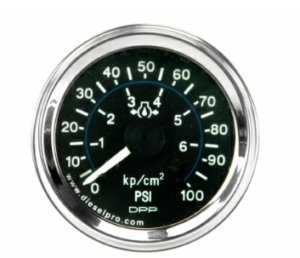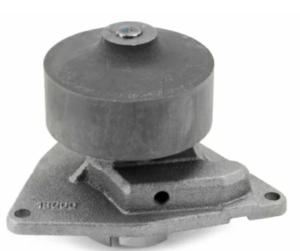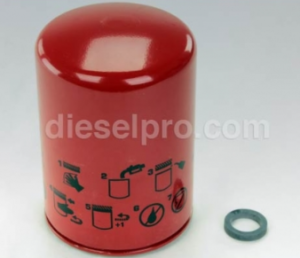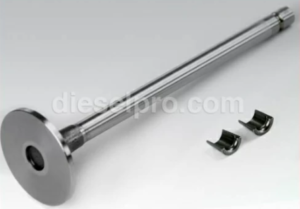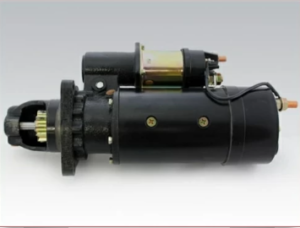April 21, 2025
Overview of the Fuel Injection System For Cummins ISC, QSC8.3, ISL, QSL9
Introduction to High-Pressure Common Rail (HPCR) Technology
How Fuel Injection Works in These Engines
Fuel Injection Strategies
Troubleshooting Common Fuel System Issues For Cummins ISC, QSC8.3, ISL, QSL9
Symptoms of Fuel System Problems
Diagnostic Steps
Common Faults and Their Causes
Specific Troubleshooting Tips
Use of Diagnostic Software
Cleaning and Replacing Injectors For Cummins ISC, QSC8.3, ISL, QSL9
Injector Design and Function
When to Clean vs. When to Replace Injectors
Cleaning Procedures
External Cleaning
Ultrasonic Cleaning (Bench Cleaning)
On-Engine Injector Cleaner Kits
Replacement Procedure Overview
Tips for Successful Injector Replacement
Understanding the Injector Calibration Code
Preventing Future Injector Problems
Recommended Injector Service Intervals
Conclusion: Maintaining Optimal Fuel System Performance For Cummins ISC, QSC8.3, ISL, QSL9
Read More
February 27, 2025
Introduction
1. The Role of the Lubrication System
2. Oil Pump Operation and Servicing
2.1 How the Oil Pump Works
2.2 Signs of Oil Pump Failure
2.3 Servicing the Oil Pump
3. Oil Filter and Lubrication Maintenance
3.1 Importance of Regular Oil Changes
3.2 Choosing the Right Engine Oil
3.3 Replacing the Oil Filter
4. Identifying and Fixing Oil Leaks
4.1 Common Causes of Oil Leaks
4.2 How to Identify Oil Leaks
4.3 Fixing Oil Leaks
5. Preventative Maintenance Tips
Conclusion
Read More
February 27, 2025
Introduction
1. Importance of Maintaining Proper Cooling
1.1 The Role of the Cooling System in Engine Health
1.2 Signs of Cooling System Problems
2. Radiator and Coolant Maintenance
2.1 Radiator Maintenance and Inspection
2.2 Coolant Maintenance and Replacement
Coolant Change Intervals
Proper Coolant Mixture
3. Water Pump Inspection and Replacement
3.1 Signs of a Failing Water Pump
3.2 Water Pump Replacement Procedure
4. Common Cooling System Problems and Troubleshooting
Overheating Despite Coolant Being Full
Coolant Leaks Near the Engine
White Smoke from Exhaust with Coolant Loss
Coolant Turning Brown or Sludgy
Conclusion
Read More
February 27, 2025
Introduction
Long-Term Engine Storage Procedures
Key Considerations Before Storage
Step-by-Step Long-Term Storage Procedure
Preventing Corrosion and Damage During Downtime
Effects of Long-Term Inactivity on Engine Components
Component
Common Issues Due to Storage
Prevention Methods
Steps to Prevent Corrosion and Damage
Restarting Procedures After Storage
Step-by-Step Engine Restart Procedure
Preventative Maintenance After Storage
Conclusion
Read More
February 27, 2025
Introduction
Torque Settings for Bolts and Fasteners
The Importance of Proper Torque Settings
Component
Torque Specification
Notes
Best Practices for Torque Applications
Valve Clearance Adjustments
The Role of Valve Clearance Adjustments
Recommended Valve Lash Specifications
Step-by-Step Valve Clearance Adjustment Procedure
Common Mistakes to Avoid
Timing Settings and Proper Alignment
The Importance of Correct Timing
Timing Gear and Injector Pump Alignment
Step-by-Step Timing Adjustment Procedure
Common Timing Issues and Solutions
Best Practices for Setting Timing
Conclusion
Read More
February 27, 2025
Introduction
Understanding Fault Codes and Warnings
The Importance of Engine Fault Codes
How to Read Cummins Fault Codes
Common Cummins QSC 8.3 and QSL 9 Fault Codes and Their Meanings
Common Engine Problems and Solutions
1. Engine Won’t Start or Hard Starting
2. Engine Overheating
3. Excessive Black Smoke from Exhaust
4. White Smoke from Exhaust
5. Low Oil Pressure Warning
Using Diagnostic Tools for Troubleshooting
Essential Diagnostic Tools for Cummins QSC 8.3 and QSL 9 Engines
How to Use a Diagnostic Scanner to Identify Issues
Preventative Maintenance to Reduce Diagnostic Issues
Conclusion
Read More
Page 1 of 1012345...10...»Last »




 Free US Calls: 1-888-433-4735
Free US Calls: 1-888-433-4735 International: 305-545-5588
International: 305-545-5588
